Austria’s supreme court legalises same-sex marriage
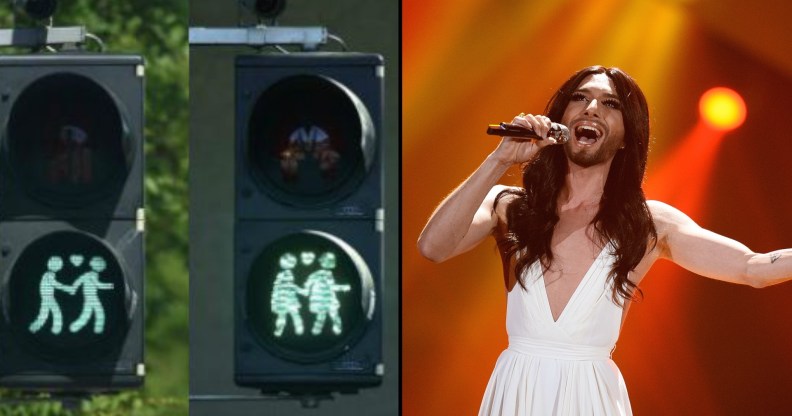
(L-R) A gay couple, Austrian singer and drag queen Conchita Wurst and Austrian TV host Verena Scheitz stand on stage during the opening of the 24th Life Ball at the Rathausplatz in Vienna, on 10 June 2017.
Austria’s highest court has legalised same-sex marriage, with weddings set to begin in 2019.
Austria has permitted same-sex couples to enter civil partnerships since 2010, but politicians have repeatedly rejected attempts to legalise equal marriage.
However, the country’s Constitutional Court this week delivered a ruling, after two women from Vienna were denied permission to enter a marriage.
In a court ruling published today, the court said that restrictions should be lifted.
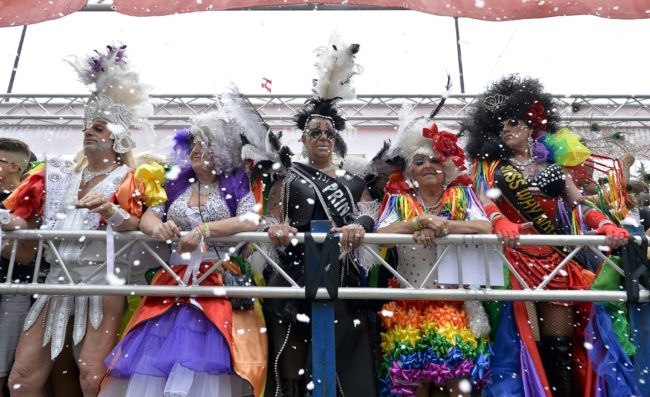
Vienna Pride (Photo by HERBERT NEUBAUER/AFP/Getty Images)
The court ruled that not allowing same-sex couples to marry is discrimination.
It said: “The Constitutional Court nullified with a decision on December 4, 2017 the legal regulation that until now prevented such couples from marrying.
“The distinction between marriage and civil partnership can no longer be maintained today without discriminating against same-sex couples.
“[Under current law] people with same-sex sexual orientation are not equal to people with heterosexual orientation.
“The resulting discriminatory effect is seen in the fact that through the different title of the family status, people living in same-sex partnerships have to disclose their sexual orientation even in situations in which it is not, and must not be, relevant and are highly likely to be discriminated against.”
Marriages do not begin instantly, however.
The court set a deadline of the end of 2018 for the change to come into effect, meaning that same-sex marriages will begin from the start of 2019 unless the government makes arrangements for it to happen sooner.
The Homosexual Initiative Vienna (HOSI) welcomed the decision.
HOSI chairman Christian Hoegl said: “We are very happy. We want to use the opportunity for a renewed call for a fundamental reform of marriage.”
ILGA-Europe Executive Director Evelyne Paradis said: “This decision opens up marriage and registered partnerships to all couples; it is a really positive and refreshingly inclusive judgment.
“ILGA-Europe are sending all our congratulations to the LGBTI activists, legal experts (including Helmut Graupner who represented the couple involved in this case throughout their journey), supporters of the Ehe-gleich citizen’s initiative, and all the allies who stood together to call for equality.”
After a recent election, the country’s incoming government is likely to be made up of the right-wing Austrian People’s party (ÖVP) and hard-right Freedom Party, neither of which support same-sex marriage.
However, the country’s President, left-wing Green politician Alexander Van der Bellen, is a supporter of equality.
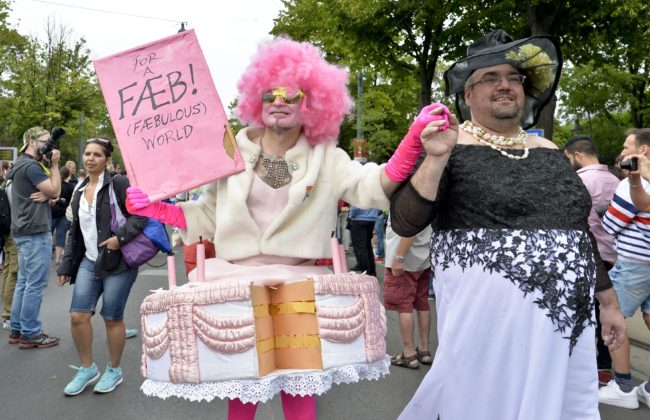
Equal marriage protesters at Vienna Pride (Photo by HERBERT NEUBAUER/AFP/Getty Images)
Austrian Eurovision icon Conchita Wurst has previously spoken about her frustration with her homeland for its slow progress on equal marriage.
The drag star said: “I’m a human being and I have the same rights as everyone else, so I don’t need to discuss about that because it should be a common thing. So stop discussing, just make it equal.
“I don’t need a campaign, I just need decisions. I don’t need more time wasted. I’m not a politician, I don’t know how long it takes to make rights, but I’m one of thousands of thousands of people who are waiting.”
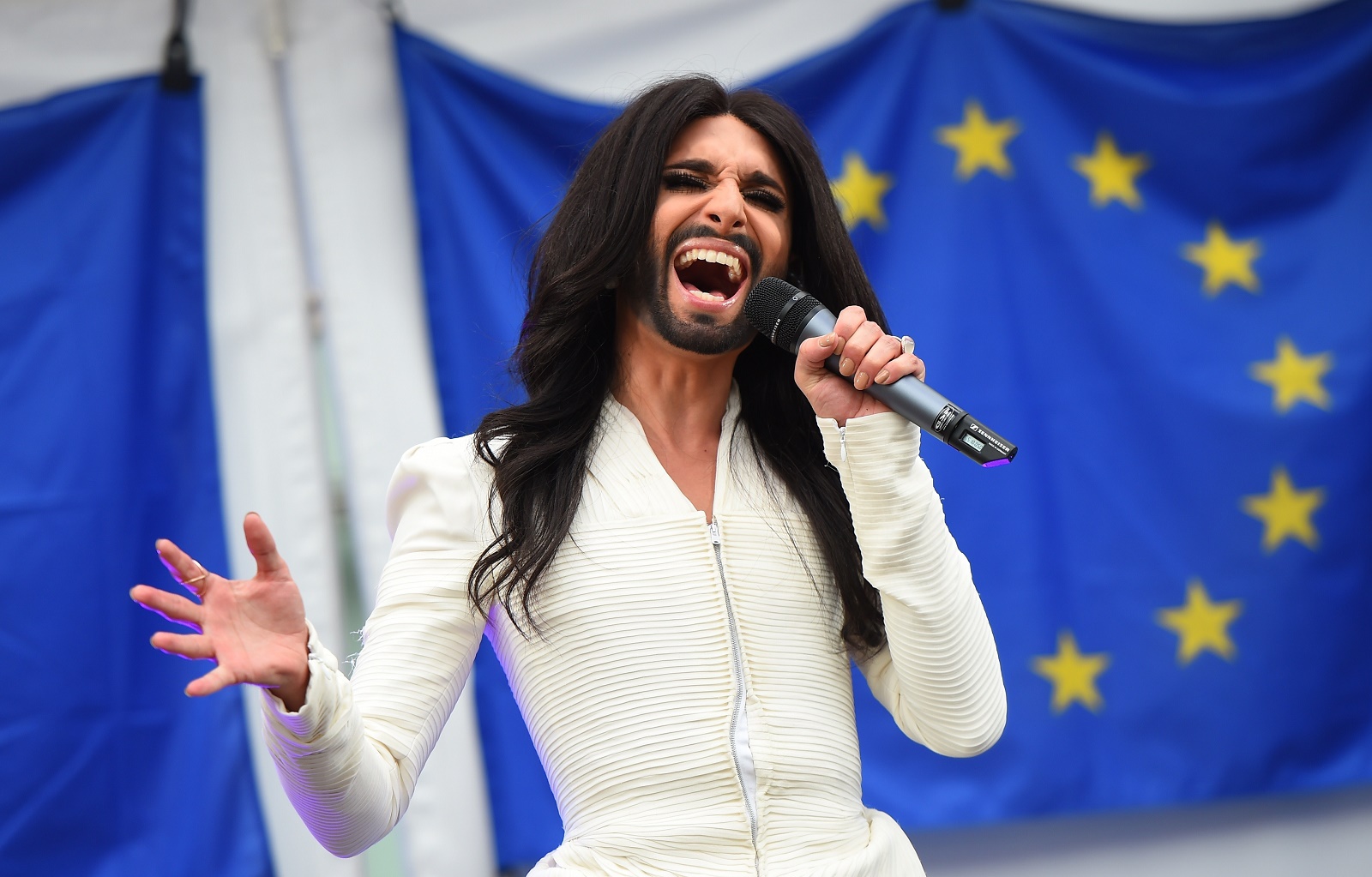
The last time politicians voted on a same-sex marriage bill in the country, it was rejected by 110 votes to 26.
The progress in Austria follows a breakthrough in neighbouring Germany, where same-sex marriage became legal this year.
Equal marriage passed through the lower house in the German Parliament over the summer, after Chancellor Angela Merkel caved in to demands from opposition parties.
The country’s right-wing Chancellor, who has blocked equal marriage for more than a decade, reversed her long-standing policy to allowed her own MPs to vote with their conscience on the issue.
Though Merkel still cast her own vote against the law, it gathered enough support to sail through Parliament by a vote of 393-29.
The sudden breakthrough in both countries has been hailed as a breakthrough by LGBT rights groups.
The news means that Northern Ireland is even further isolated.
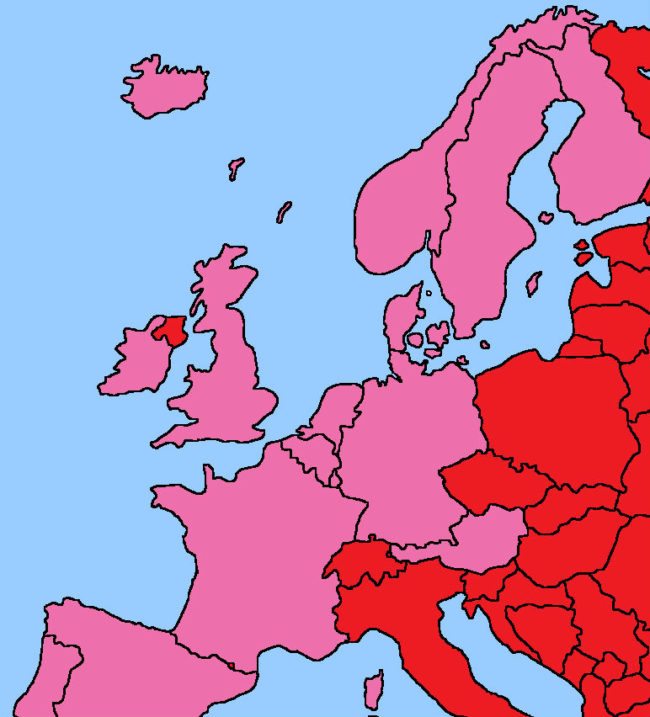
The region of the UK is now far removed from much of Western Europe.
Finland, Malta, Germany have all begun same-sex weddings this year.

